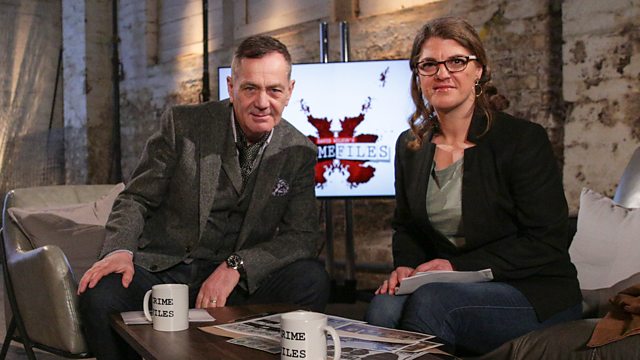Double Life
Criminologist David Wilson studies the psychology behind the need for those who lead a life of crime to have to conceal their activities by leading a secret or double life.
Leading criminologist Professor David Wilson and guests reinvestigate Scotland’s most notorious miscarriages of justice, looking for the reasons they occur.
In this episode, David and guests delve into the psychology of criminals who lead a secret or double life, hiding behind a respectable or constructed front in order to cover up their illegal activities, and how the idea of the ‘dual nature and duality’ is imbedded in the Scottish psyche.
In a short film, investigative journalist Fiona Walker takes us back to 18th-century Edinburgh to tell the infamous tale of Willie Brodie, town councillor by day, criminal mastermind by night. She sets up how old Edinburgh was terrorised by a series of dramatic jewel and bank heists in which there was never a sign of a break-in. Finally, the authorities offered a pardon to anyone willing to give evidence. This led to the scandalous arrest and execution of one of the city’s most respected citizens.
In the studio, Fiona reveals more background information on Brodie and his character to David; that he was simply committing these crimes for ‘the buzz’. David suggests that Brodie was indulging in the ‘the joys of transgression’, that he was indeed getting off on his secret double life. Details of how Brodie flamboyantly met his death by hanging in front of a crowd of 40,000 onlookers seems to confirm David’s theory.
David is joined in the studio by mysterious Scottish crime fiction novelist Ambrose Parry, who is actually two authors – husband-and-wife writing team Chris Brookmyre and Marisa Haetzman. They discuss their debut novel - The Way of All Flesh - and the double life its main characters lead, as well as the dual nature of its setting 19th-century Edinburgh. David also grills the pair on the challenges of their working relationship; two people trying to write one piece of work together.
In a short film, David recounts the tale of Hologram Tam, a master printer who ran a seemingly ordinary print and graphics shop that specialised in takeaway menus, posters and flyers, but how in reality he was producing enough counterfeit money to destabilise the British economy. He reveals how it was the quality of the notes, in particular the forging of the hologram on them, that earned the counterfeiter his nickname, but would ultimately get him caught.
In the studio, David is joined by comedian Janey Godley, who was not only a personal friend of Hologram Tam’s but also used to get her comedy show posters and flyers printed by him, never knowing that all the while he was ‘cracking off £50s in the back’. She reveals that, in her opinion, he didn’t break the law and forge money to get rich, but because he could, because he was the best.
David’s master interview guest is with Gavin Bain, one half of rap duo Silibil N’ Brains, who were signed by Sony Records as a Californian hip hop act and billed as the next Eminem. Except they weren’t from California, they were from Dundee. They were faking it. In an often humorous but on occasions dark interview, David delves into the double life that Gavin led; the preparation, the lying, the fear of discovery and being sued – and ultimately the psychological toll that faking it took on Gavin.
Last on
More episodes
Previous
Credits
| Role | Contributor |
|---|---|
| Presenter | David Wilson |
| Presenter | Fiona Walker |
| Director | Craig Collinson |
| Series Producer | Craig Collinson |
| Executive Producer | Harry Bell |
| Producer | Emma Fentiman |
| Producer | Ruth Mulcahy |
Broadcasts
- Sun 19 Jan 2020 21:00
- Tue 21 Jan 2020 23:00
- Tue 19 Jan 2021 23:00
- Tue 9 Aug 2022 23:00

